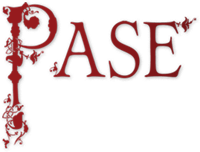Beorhtsige 47
Beorhtsige ‘of Trentishoe’ (Devon), fl. 1066
Male
CPL
4 of 5
Summary
Beorhtsige 47 was a small landowner with a single manor on the north Devon coast, of ½ hide worth 10 shillings.Distribution map of property and lordships associated with this name in DB
List of property and lordships associated with this name in DB
Holder 1066
| Shire | Phil. ref. | Vill | DB Spelling | Holder 1066 | Lord 1066 | Tenant-in-Chief 1086 | 1086 Subtenant | Fiscal Value | 1066 Value | 1086 Value | Conf. | Show on Map |
|---|---|---|---|---|---|---|---|---|---|---|---|---|
| Devon | 3,48 | Trentishoe | Brixi | Beorhtsige 'of Trentishoe' | - | Geoffrey, bishop of Coutances | Drew fitzMauger | 0.50 | 0.50 | 0.50 | A | Map |
| Totals | ||||||||||||
Profile
Beorhtsige (Brixi) held one small manor of ½ hide at Trentishoe on the north Devon coast west of Exmoor, on high cliffs and moorland towering over deep and narrow combes. There was reckoned land for 5 ploughs, with appropriate areas of pasture and woodland. The owner of such a small estate was plainly not the same man as the magnate Beorhtsige Cild (Beorhtsige 23), who had manors along the coast in Somerset, nor the small Cornish landowner Beorhtsige 48 nearly 50 miles away. But conceivably he was the Brisid who had 1 virgate worth 10s., the smaller of two manors at Woolacombe, occupying a gentler combe facing west over the sea some 12 or 13 miles west of Trentishoe. Brisid has been taken as the feminine name Beorhtgyth (von Feilitzen 1937: 194), but in Exon (408b2) the name is written with the normal contraction mark for the masculine ending –us (Brisidus).The scribe of GDB followed his usual habit of delatinizing both personal names, changing Exon’s Bricsius (128b3) to Brixi, and its Brisidus to Brisid. There is no implication that he recognized that Brisidus was really a woman whose name had been mistakenly extended in Exon as masculine; only that he was lopping off Exon’s inflected endings wherever he could. Of course, Exon’s Brisidus could itself be a mistake: in particular a careless latinization of Brisid by a scribe who did not recognize that it stood for a feminine name. On the other hand, Brisidus could have stood for Beorhtsige: in Somerset a different Beorhtsige is once in Exon spelled Bricsitius (Exon 478b1). On balance, however, Brisid(us) at Woolacombe is here regarded as standing for the feminine name Beorthgyth (Beorthgyth 3).
